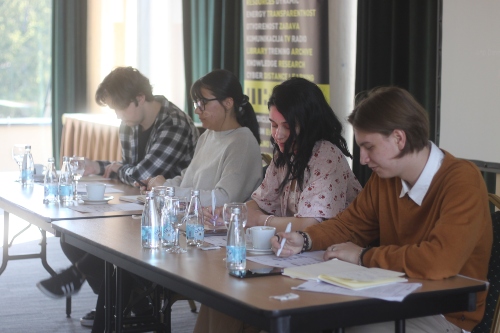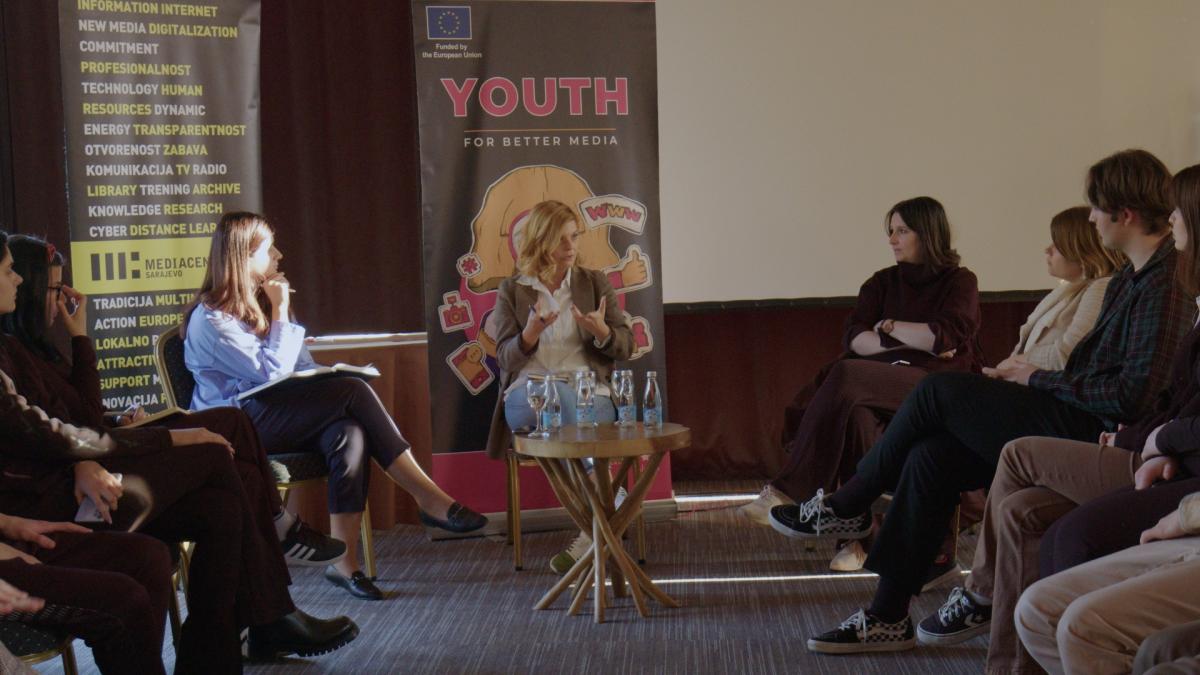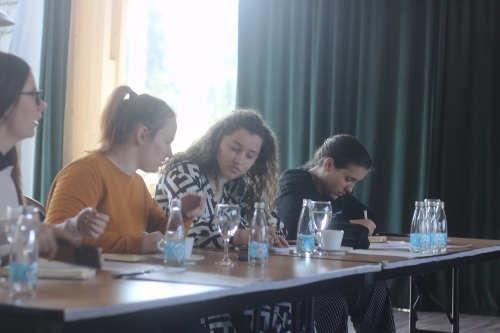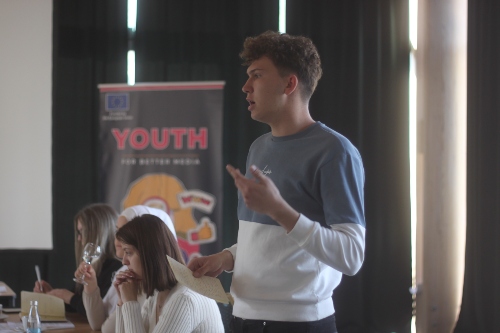Fifteen Young People Learn Debating Skills on Mount Trebević

Fifteen Young People Learn Debating Skills on Mount Trebević
06/04/2022
Al Jazeera Balkans reporter Nadina Maličbegović, who participated in the debate camp, also emphasizes that education and media literacy of young people is extremely important.
Fifteen young people from different parts of Bosnia and Herzegovina participated in a three-day debate camp on the freedom of speech and disinformation on the Internet to gain skills in debating and learn about the role of traditional media in society, as well as disinformation with a focus on freedom of speech.
One of the trainers of this camp was Anida Sokol, researcher and project coordinator at Mediacentar Sarajevo, who emphasized the importance of young people understanding the concept of freedom of speech, i.e., knowing what freedom of speech is and understanding that it is not absolute; that there are certain restrictions.
"Freedom of speech is limited in certain situations when we spread hatred towards others on the basis of certain protected characteristics, when certain information or misinformation is dangerous for security in a country, for human health and the like. So, we are talking to them about regulation," stated Sokol, who explains that the emphasis of this camp, which was held on Mount Trebević, was how to regulate social networks, considering that they are responsible for spreading harmful content.

“How can we regulate it, where is the line between dangerous, harmful speech and the freedom of speech? That is exactly what we are talking about with these young people, so that – through debate – they can gain the skills needed to both recognise problematic media content, but also understand the role of traditional media, credible information and the importance of such information for democratic societies, and even understand what freedom of speech is and why it is important”, Sokol adds.
The leader of the debate in this camp was Jasmin Hasić, assistant professor at the Sarajevo School of Science and Technology, who points out that young people in Bosnia and Herzegovina have great ideas but often lack ways to materialize them and that this is the importance of this debate. Skills that, as Hasic says, are systematically neglected in our educational system. He says young people will rarely have the opportunity to sit together and discuss topics that are important to them for what they do and in the sphere in which they operate.
"What we are trying to do through this simulated debate is to point out to them the importance of a topic as a topic in itself, and not their views. So, we want to distinguish that what they are talking about does not necessarily maintain their worldview, whatever it may be," Hasić emphasises.
He also says that it is very important to warn them that they will not often have the opportunity to use the format in which they debated for three days in everyday life, but that the skills that this simulated model brings are the added value that debates have, and that in the public sphere they will be able to show those skills and knowledge - not just a certain knowledge of the topic they want to debate.
Al Jazeera Balkans reporter Nadina Maličbegović, who participated in the debate camp where young people had the opportunity to talk to her and ask her questions about her work with reference to her reporting on the war in Ukraine, also emphasizes that the education of young people and their media literacy is extremely important. She was in Ukraine where at the time the Russian invasion of that country began. As he says, these types of camps are extremely important, especially if we take into account that people come to different areas with different attitudes and with different ideas.

"They were exposed to a single narrative for years and now they are gathered in one place and their views are now opposed. You can help them by trying to instil the understanding that everything that has been written is not necessarily true," said Maličbegović, who emphasises that this is particularly important in BiH, where we still live in a post-war situation where these divisions are so obvious and where society is totally divided.
Even if young people leave this camp with the same views they came with, they will still at least have learned that there is another side and another position that should be given the opportunity to be heard, and they will adopt the information that helps them continue to act and reshape their consciousness in a way – if it needs to be reshaped", states Maličbegović.
She states that during her stay in Kyiv, misinformation prevailed in the media, as well as violations of media freedoms. She says that from the beginning it was clear that apart from weapons, there is a war of information, a war of propaganda, and that for that reason every piece of information had to be checked several times and sources had to be sought out, especially when it comes to information coming from the armed forces of one side or the other.

She also says that it is very difficult to report in such crises and that the issue is that there is not much time to prepare, but that it is very important to stick to official sources in such situations and to seek confirmation from several sides. She stated that it is important to hear the Russian side as well, regardless of the fact that this country invaded another sovereign and independent country, and that the fact that Al Jazeera also has a team in Moscow was a facilitating circumstance.
Through practical examples and interactive workshops, young people were provided with knowledge in the field of media information literacy with an emphasis on the regulation of social networks. One of the participants of this camp was Kenan Junuzović from Gračanica, who said that participation in this type of project is greatly important because he believes that in this way young people can create strong activist and youth resources that will later serve the citizens of BiH.
"I think that, during this camp, we gained the necessary knowledge in the field of critical thinking where we managed to develop our communication skills since we had two sides in each topic who advocating for and against the hypothesis and so we exchanged our opinions on various topics. That is what enriches this type of informal education through debates and similar activities", says Junuzović.

Debate camp participant Milica Kos from Laktaši says that she came to this debate camp to learn more about the media, freedom of speech, the difference between freedom of speech and hate speech, as well as to meet other young people from different parts of Bosnia and Herzegovina, exchange opinions, but also to learn from professionals.
Kos is studying at the Peoples' Friendship University of Russia in Moscow and says that recognizing and spreading misinformation, which was one of the topics of the camp, is a very important segment because disinformation spreads with incredible speed, adding that this type of training is extremely important because the participants will pass on the information and knowledge acquired in the camps to their local communities, which, in her opinion, will contribute to shaping opinions about the media in BiH.
One of the participants of the debate camp was Dallal Daffalla from Gračanica, who says that she applied to this camp because she does not keep up with the media enough and wanted to learn something new. She adds that such workshops are important to learn how to recognize false information and to learn the difference between freedom speech and hate speech.
The debate camp is organised as part of the project "Youth for Better Media" funded by the European Union, and jointly implemented by Mediacentar Sarajevo and Ja bih EU.




